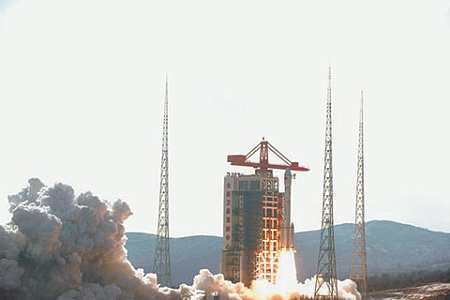
Elon Musk’s company SpaceX has not received a license from the government of Bolivia to provide Internet services in this country, preferring the Chinese project. The American billionaire, and with him the United States, was defeated. It is especially impressive when you consider that SpaceX’s satellite Internet service is currently available in almost all Latin American countries. The exceptions are Bolivia, Venezuela and Suriname. Despite all the advantages of Starlink technology, La Paz refuses to cooperate with Musk, fearing the increasing influence of the businessman, including on the country’s politics. In these circumstances, the Chinese company offers an alternative – the SpaceSail project.
Bolivia is a Latin American country with a small number of Internet users. According to the World Bank, in 2023, only 70% of Bolivians used Internet services. For comparison, this figure is 84% in Brazil, 89% in Argentina and 94% in Chile. According to The New York Times, communications in Bolivia are so poor that you have to climb higher to get a signal, and Internet connection is mostly available only in large cities. The solution to the problem could be cooperation with Musk’s company SpaceX, which provides access to high-speed Internet. However, the country’s authorities refused to issue a license to operate Starlnk. This decision angered many in Bolivia. Nevertheless, SpaceX proves its effectiveness in more than 118 countries around the world, guaranteeing an Internet connection even in the forests of the Amazon. However, despite all the advantages of the American satellite network, the Brazilian government is already looking for alternatives, fearing monopolization of the communications market by a foreign company.
It was this circumstance that the Bolivian authorities drew attention to, refusing to deal with SpaceX. It is likely that the prospects for cooperation with Musk were also influenced by the fact that last year the businessman ignored the instructions of the country’s Supreme Court to block users of his social network who, as the judges decided, spread misinformation. None of the interested parties disclosed which accounts should have been blocked.
The Bolivian authorities point out that betting on Starlink could lead to unfair competition and undermine the sovereignty of the state. According to Bolivian experts, there is a risk that an influential American company will change the country’s legislation in its favor. Therefore, Bolivia continues to use the old Chinese satellite to provide Internet connectivity, although its service life is coming to an end: it is expected that it will be out of service by 2028.
The Chinese SpaceSail project may become an alternative to Starlink. The company that implements it launched a rocket with the first 18 satellites in August last year. By the end of 2025, it is planned that about 600 orbiters will be in orbit.
Brazil has already signed a contract with a Chinese company. As for Bolivia, preliminary negotiations have been held with SpaceSail on the possible use of the satellite network it is creating, said Bolivian Ambassador to China Hugo Siles. “We are working with China because we believe that there is full agreement with the Bolivian rules and respect for our sovereignty,” he said.
Thus, a new Sino-American confrontation is unfolding in Latin America. Beijing is strengthening its presence, although China is still inferior to the United States and the EU in terms of invested funds. And the United States strives not to lose both economic and political influence, and American companies strive to maximize financial benefits.
Viktor Kheifets, director of the Center for Ibero-American Studies at St. Petersburg State University, told NG that China’s attractiveness to Latin American countries can be explained by the favorable conditions provided by the Chinese, at least in the short term. Transactions with Chinese companies, loans and investments of the PRC are never driven by political reasons or requirements to deal only with them, as is usual with transactions with the Americans.
“The Chinese have their own problems. If at the beginning of this century the image of China was positive in Latin American countries, today China has greatly declined in terms of image. Americans, on the contrary, have improved their image in some cases. I’m not ready to say that China as a whole has a better chance of success than the United States,” said Heifetz.
China’s relations with Latin American countries are also affected by the change in US policy under Donald Trump. “In the noughties, when China began its economic expansion here, it happened against the background of a weakening of US interest in the region. Americans largely switched to the Far and Middle East and watched, with slightly closed eyes, what was happening in Latin America. Not only China, but also many extra-regional forces took advantage of this: Turkey, the EU, and the Russian Federation. With Trump coming to power, Latin America has once again become the focus of the White House’s attention. It requires countries not only to choose whether they are with the United States or China, but also threatens to impose tariffs on those who are not going to make such a choice. This does not mean that he will necessarily be listened to. Rather, Latin Americans will carefully study the situation, watch, and think about who they should deal with and who they should not deal with,” the expert said.
